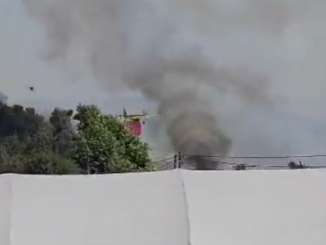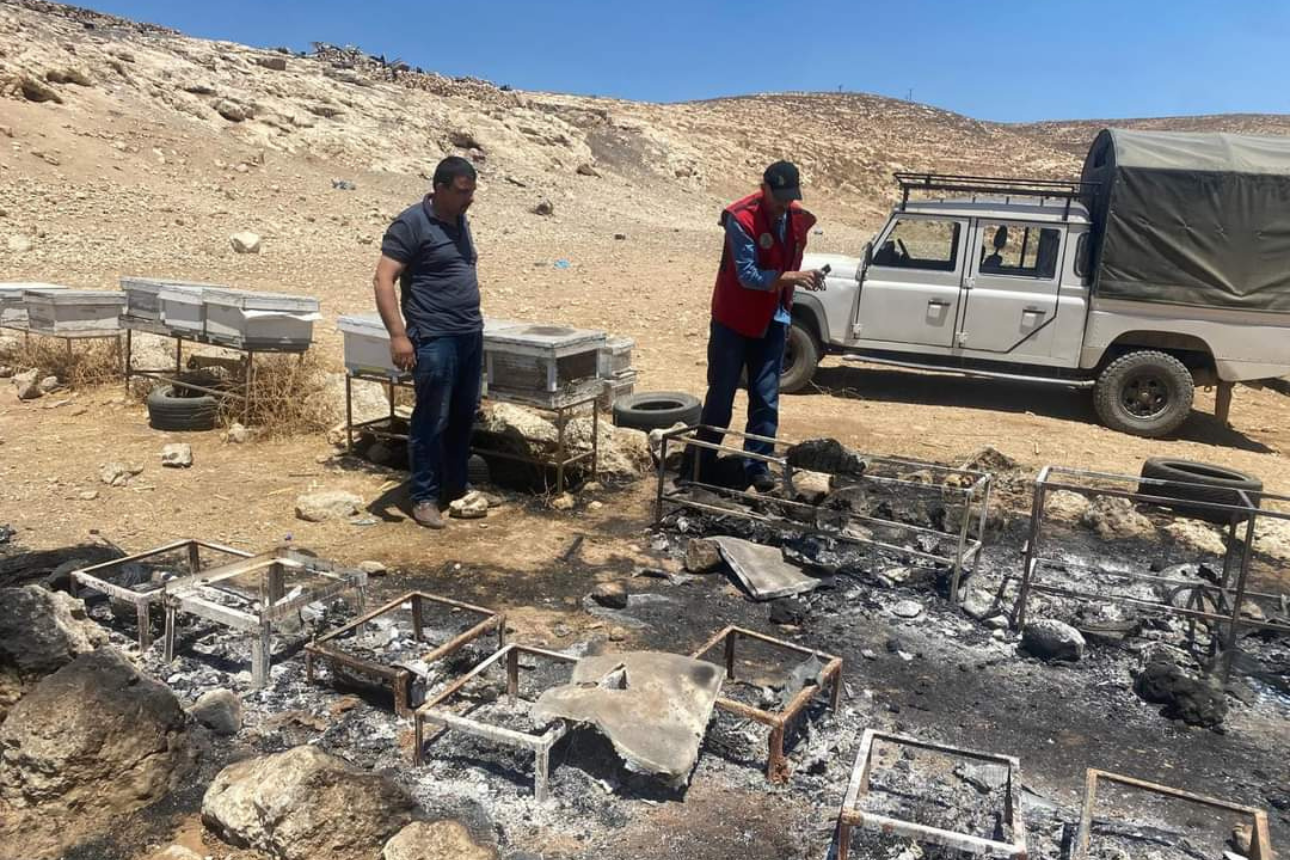
Israeli restrictions and violations, along with repeated settler attacks, directly affect the whole beekeeping industry in occupied Palestine.
On August 2, Palestinian beekeeper Yousef al-Sharha headed to his beehives in Hebron, south of the West Bank. As he approached the place, he found that most of the hives had been destroyed and burned by illegal Israeli Jewish settlers.
Al-Sharha was devastated but not completely shocked.
Beekeeping in the West Bank faces numerous obstacles, including the Israeli occupation.
Al-Sharha’s love for bees and his interest in raising them began at a very young age. When he was a child, he often visited beehives with his relatives in the southern Hebron hills.
After graduating in agricultural engineering, Al-Sharha could not find a suitable job. To avoid employment, he decided to turn his old passion into a career, thus becoming a beekeeper.
But, soon enough, he found that Israeli restrictions and violations also directly affect his work, and the whole beekeeping industry.
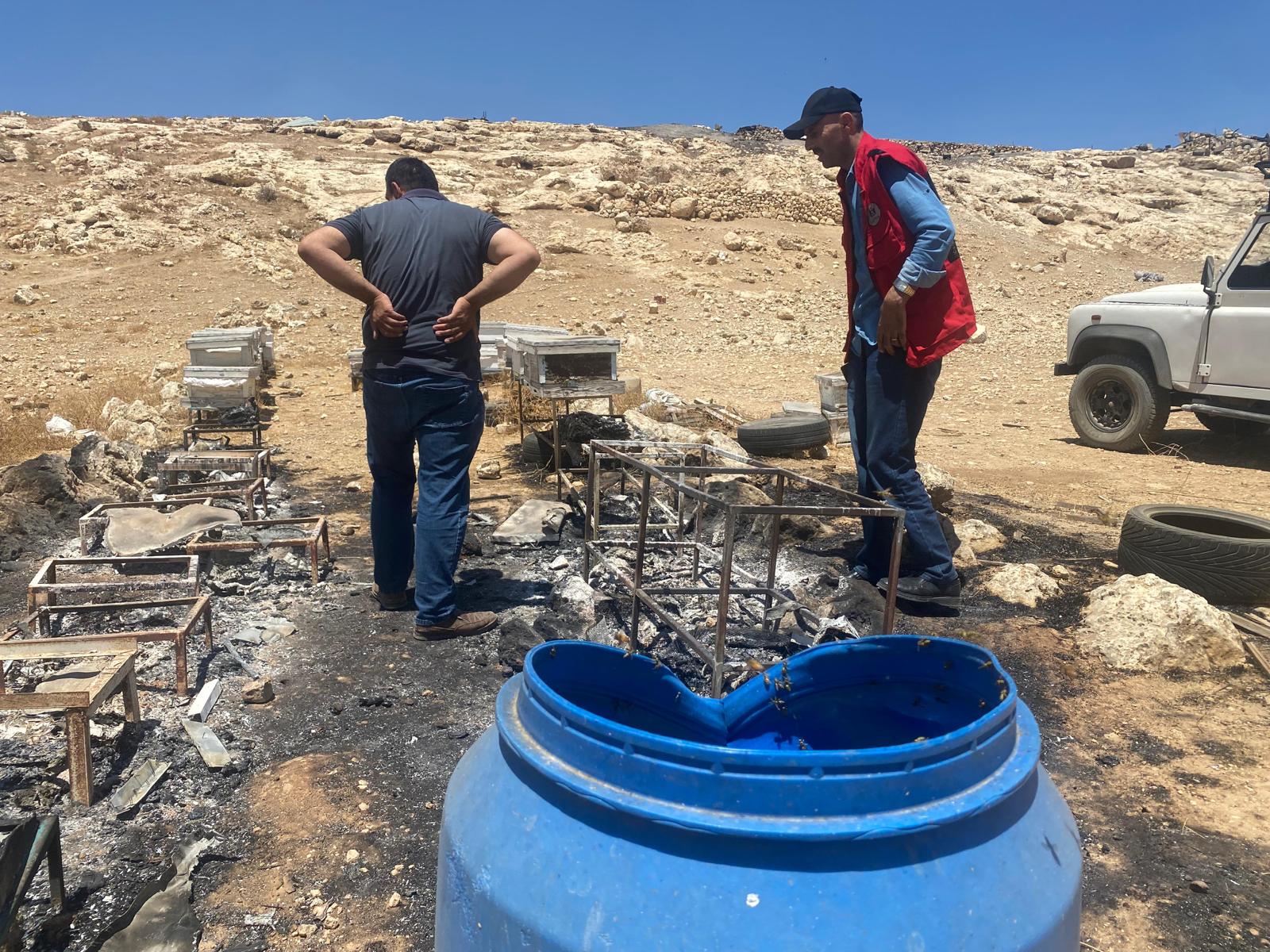
One Sad Morning
“I was on my way to harvest honey from my beehives in the Zanuta area, near the town of Al-Dhahiriya, only to find out that 21 of the 55 beehives had been burnt,” al-Sharha told The Palestine Chronicle.
A group of settlers, who were still in the area, attacked the beehives and set them on fire, he told us. Then, they assaulted the owner of the land with batons and demanded that he leave.
According to al-Sharha, the ultimate goal of these settlers is to expel the Palestinians from their lands so that the illegal settlements in the area can expand even further.
“When I saw that only a pile of ash had remained, tears filled my eyes,” al-Sharha said.
“This is our land and yet, we are not even allowed to raise bees on it.”
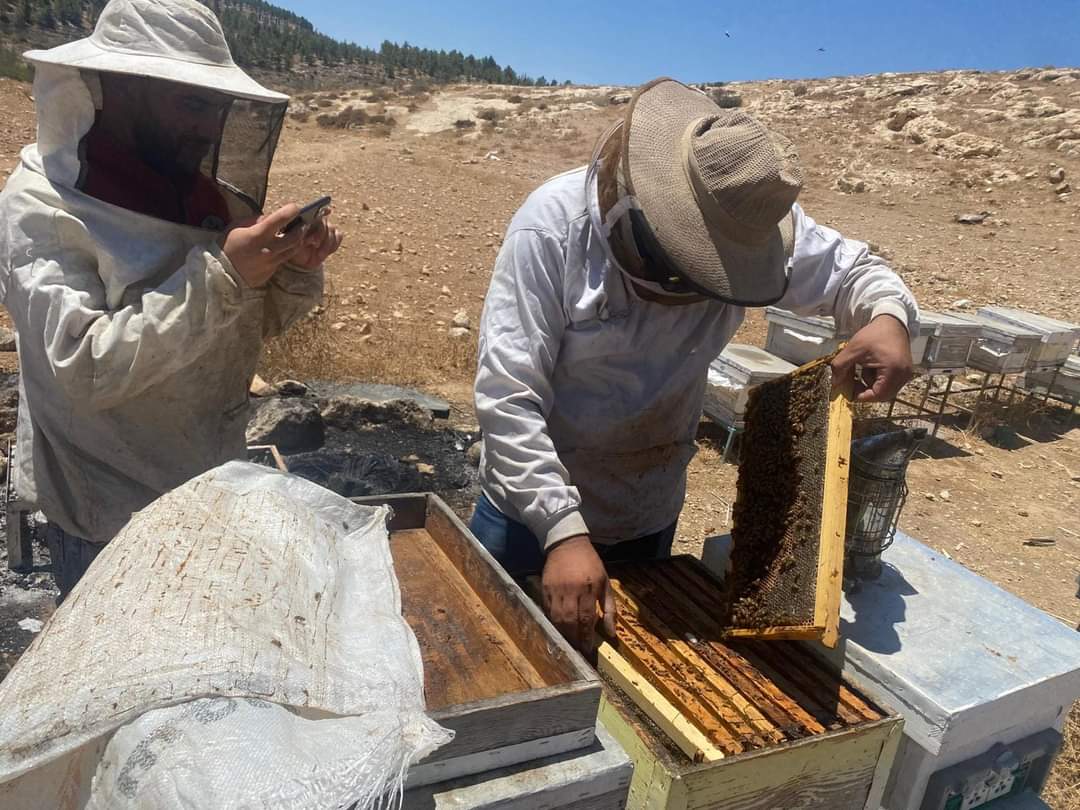
Not Only Settlers
Repeated settler attacks are not the only obstacle for Palestinian beekeepers.
“Our work requires us to often move across several cities in the West Bank because each region is known for a specific type of flower,” al-Sharha explained.
“However, our freedom of movement is very limited as Israeli forces erect military checkpoints and, sometimes, close major roads”.
Al-Sharha is supposed to inspect his beehives, which are located near Ramallah and in the northern Jordan Valley, every week.
Due to the Israeli military checkpoints and road closures, it takes him at least four hours to cover the relatively short distances of a mere 40 kilometers.
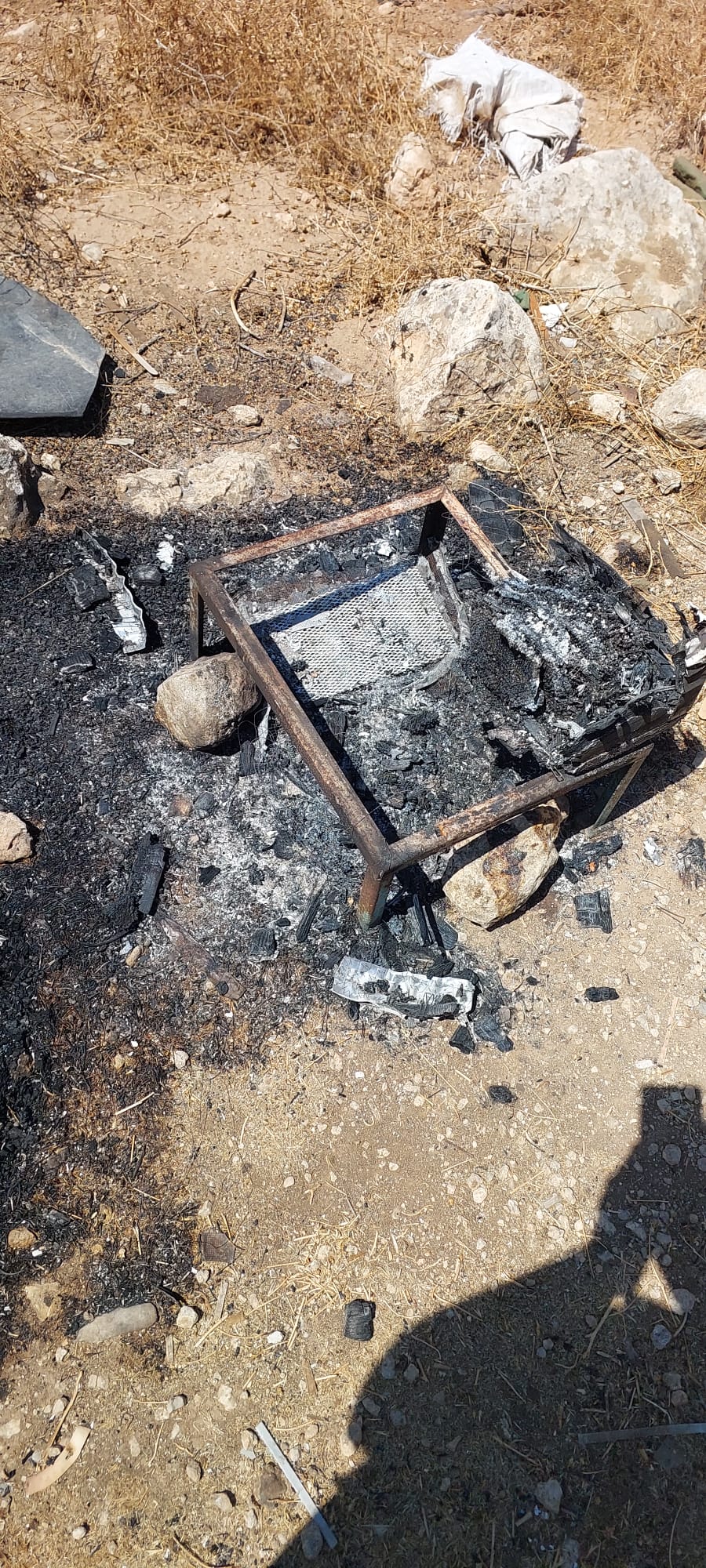
Honey of a Thousand Flowers
Due to its great biodiversity, Palestine offers a great variety of flora species, and many different flowers.
According to Nasser Jaradat, coordinator of the Cooperative Honey Breeders, Palestinian honey is one of the best in the world, thanks to the country’s biodiversity.
“Palestinian honey is called the honey of a thousand flowers,” Jaradat told The Palestine Chronicle.
“Some areas are located below sea level, while others are a thousand meters above sea level. This is a feature that is unique in the world,” he explained.
However, the almost 2,500 Palestinian beekeepers cannot fully benefit from it, due to the obstacles created by the Israeli occupation.
For example, in many cases, the Israeli army prevents beekeepers from accessing their hives in the Jordan Valley or in the northern West Bank.
It gets worse.
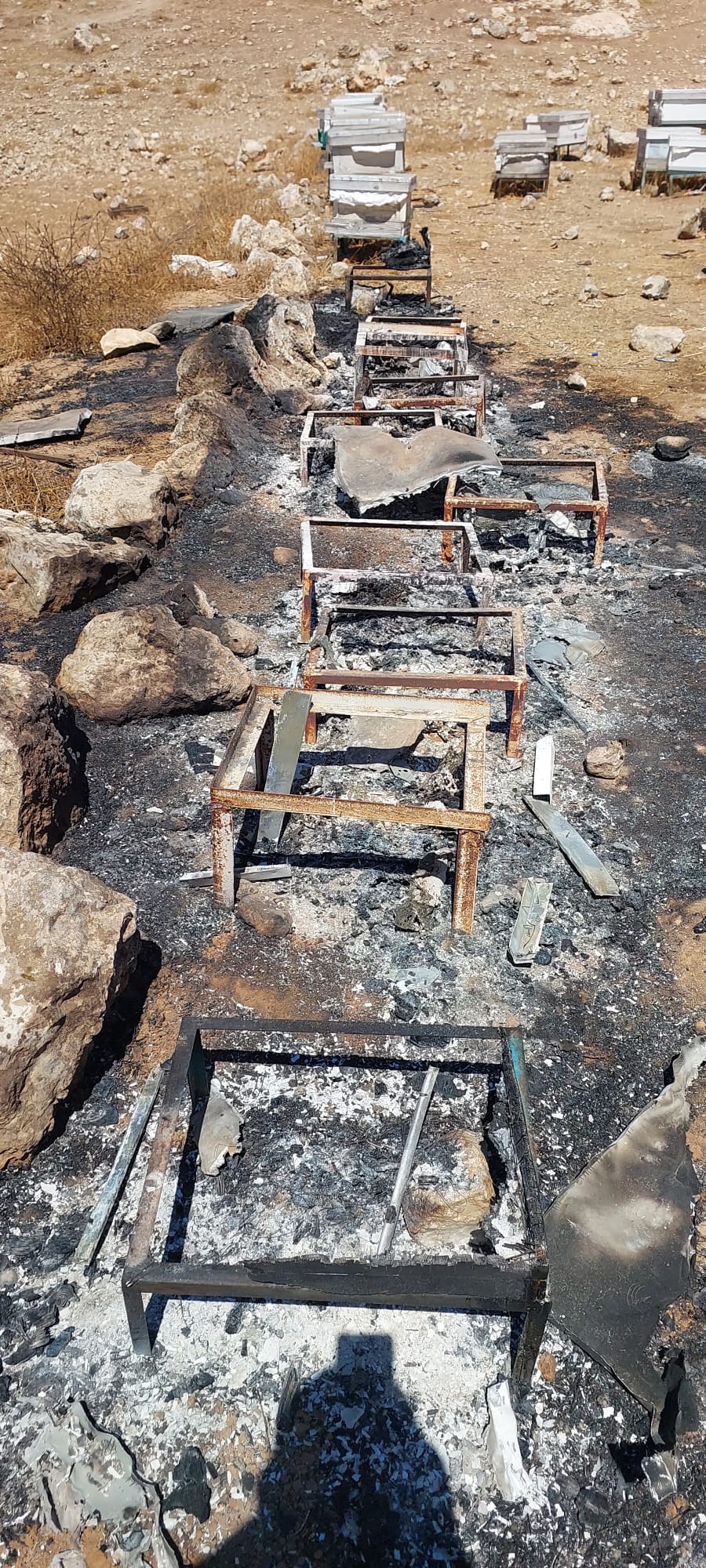
How Israel Kills Palestinian Bees
“Israeli toxic or military waste is disseminated everywhere, due to the non-stop Israeli military exercises, and they cause the death of a large number of bees,” according to Jaradat.
Moreover, Israeli occupation authorities do everything in their power to create obstacles for Palestinian beekeepers and facilitate the sale of Israeli honey to the Palestinian population as an alternative.
“Israeli honey is made in the Yad Mordechai settlement and is sold to the Palestinians as one hundred percent organic, but in actuality, it is mixed with artificial sweeteners,” Jaradat said.
“Unfortunately, they compete with the Palestinian honey, which is considered one of the best in the world”.
Sadly, Palestinian beekeepers are not protected by Palestinian Authority policies either. Indeed, domestic regulations allow the sale of many types of industrial honey.
In addition, more than 218 types of chemical pesticides are allowed to be used on Palestinian plants, which harms bees and their productivity.
“Due to these challenges, we only produce 1,000 tons of Palestinian honey per year, while the annual requirement is 2,500 tons,” Jaradat explained.
The whole beekeeping industry is in danger, due to the crippling Israeli occupation. It is particularly sad, especially when we consider how ancient the beekeeping culture is in Palestine.
“Ancient Roman books talked about Palestinian honey, and the Romans used to extract it because of its many advantages,” Jaradat said.
“Now, our job is at risk because our difficult and challenging profession is seriously under threat,” Jaradat concluded.
(The Palestine Chronicle)
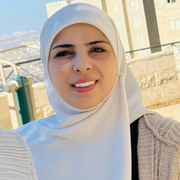
– Fayha’ Shalash is a Ramallah-based Palestinian journalist. She graduated from Birzeit University in 2008 and she has been working as a reporter and broadcaster ever since. Her articles appeared in several online publications. She contributed this article to The Palestine Chronicle.


